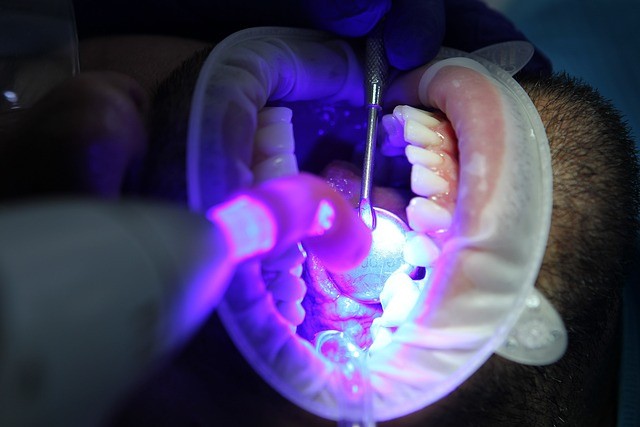The oral health system encompasses various aspects of dental care, like preventive measures, treatments, and education, to promote and maintain optimal oral health. It also includes teeth whitening, a highly sought-after dental procedure that aims to enhance the appearance of teeth by making them appear whiter and free from stains, thereby improving the overall aesthetic of one's smile.
Oral health teeth whitening systems, which include a teeth whitening strip and a type of gel that can be used to whiten teeth even at home. On the other hand, professional teeth whitening by a dentist is also an option, which involves the use of strong bleaching agents that require careful application.

Is Teeth Whitening Good for Oral Health?
As per the National Health Service's (NHS) website, teeth whitening involves bleaching the teeth to lighten their colors. While it cannot achieve a dazzling white shade, it can significantly lighten the existing color by multiple shades.
It is essential to understand that teeth whitening should be performed by a dentist or another regulated dental professional, such as a dental hygienist or dental therapist, under the supervision of a dentist. The dentist will assess a patient's suitability for whitening and advise them accordingly.
Certain conditions, like gum disease or having dental crowns, may make teeth whitening unsuitable. Do not hesitate to ask the dentist questions about available whitening treatments, expected results, the longevity of results, and any associated risks such as increased tooth sensitivity.
READ ALSO: Ultrasonic Scaler Advantages and Disadvantages: When to Use It and Can It Damage Teeth?
Are Teeth Whitening Systems Safe?
According to Cleveland Clinic, teeth whitening can be a safe option for achieving a bright white smile, but it is crucial to consult with a dentist and conduct thorough research before proceeding.
Studies suggest that hydrogen peroxide products used in teeth whitening may potentially harm the proteins in the dentin layer, the hard tissue beneath the enamel. Additionally, these products might roughen or soften the surface of the teeth.
However, it is important to note that these studies were conducted in a laboratory setting and not on living teeth. It remains uncertain whether the observed changes are temporary and reversible, or if they have long-term implications for tooth health.
When using teeth stain remover products, it is essential to be mindful of the type of product being used and to prevent contact with the gums to avoid sensitivity and irritation.
What Is the Best and Most Effective Teeth Whitening Method?
WebMD identifies two types of teeth whitening methods, namely in-office tooth whitening and at-home teeth bleaching. Since each of these methods has its pros and cons, it is important to consult a dentist for expert opinion.
In-Office Tooth Whitening
Professional teeth whitening performed by a dentist offers faster and more significant results compared to at-home kits, as the bleaching solution used is stronger and additional methods like heat or light may be employed to accelerate and enhance the whitening process.
At-Home Bleaching
There are various options for bleaching teeth at home, such as using VieBeauti Teeth Whitening Kit, which includes a teeth whitening strip and gel that is applied once or twice a day for 10 to 14 days. Moreover, tray-based systems are also available where a peroxide-based gel is used with a mouth guard-like tray for one to several hours a day for up to four weeks.
Lastly, tooth whitening toothpastes with chemicals or polishing agents designed to remove stains without bleaching can also be used. The cost of these products can range from $10 to $600, with results lasting for months and providing a brightening effect of about one shade.
RELATED ARTICLE:
Ultrasonic Scaler Clinical Use, Benefits: Can It Damage Oral Health?
Check out more news and information on Oral Health in Science Times.












